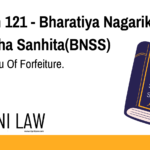Supreme Court Of India Rules Viewing Child Pornography As An offence
In a landmark decision on September 23, 2024, the Supreme Court of India ruled that simply viewing child pornography as an offence is mentioned under the Protection of Children from Sexual Offences (POCSO) Act and the Information Technology (IT) Act. This ruling overturns a controversial judgement by the Madras High Court, which has previously stated that passive consumption of such material was not punishable.
The bench, led by Chief Justice D. Y Chandrachud and Justice J. B Pardiwala, emphasised that any act of viewing, distributing or displaying child pornography regardless of physical possession fall under the defenition of “possession” as outlined in Section 15 of POCSO Act. The court criticised the Madras High Court for it’s “egregiously erroneous” ruling. This was due to their dismissal on criminal proceedings against a man accused of downloading child pornographic content.
The case arose when S. Harish, a 28 year old from Chennai, faced charges for possessing child pornography on his mobile device. The Madras Hight Court had then dismissed the case. It was argued that since Harish did not share the content, he could not be prosecuted. This prompted the NGO coalition Just Rights For Children Alliance to challenge the ruling in the Supreme Court. They asserted that it undermined efforts to combat child exploitation.
The Supreme Court’s ruling not only reinstated proceedings against Harish but also mandated that social media cannot claim safe harbour under the IT Acr unless they actively report or remove such content. The court stressed the importance of stricter compliance with reporting obligations to prevent further child exploitation.
Additionally, it urged the government to change the legal terminology from “child pornography” to “child sexual exploitative and “abusive material” to clarify the gravity of these offences.












